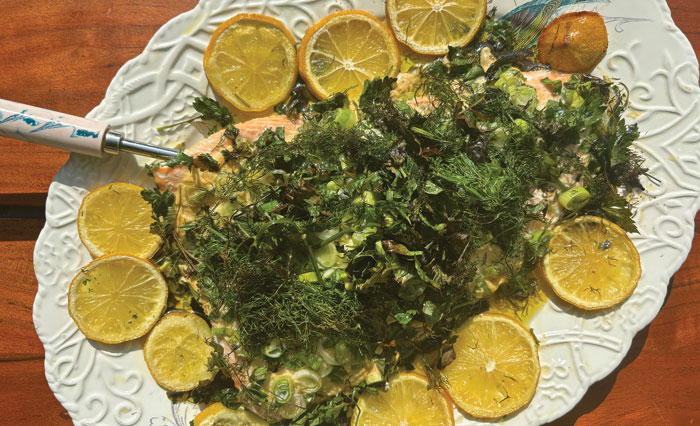It is hard for anyone paying attention to relationships between Jews and Muslims to be optimistic these days. Hope for a peaceful solution to the Israel-Palestine conflict seems to recede further and further, and mutual suspicion and prejudice among Israeli Jews and Palestinians has risen accordingly. Many Jews in France feel uncomfortable being identified as Jewish in their homeland, citing rising anti-Semitism among Muslims in particular. Since the attacks on a kosher supermarket in January 2015, record numbers of French Jews have made aliyah. And in the United States, the rise of pro- and anti-Boycott, Divestment and Sanctions movements has often pitted Jews against Arabs and by extension Muslims, perhaps especially on college campuses.
There are many things we must do to combat rising anti-Semitism and Islamophobia. But as a Jew, I believe that this work must start at home, in our own communities. We cannot convincingly educate others about the dangers of anti-Semitism — which have been on upsetting display this election season here in the United States — without seriously addressing prejudice in our community. To be blunt: Jews must do everything we can to educate ourselves about Islam, and about Jews’ historic relationship with Muslims.
Fortunately, there is a long history of Jews and Muslims living together that can help change the way many in the U.S. — including many Jews — think about Muslims and the Islamic world. Unfortunately, this history is too little known. The vast majority of students who learn Jewish history are still taught an Ashkenazi-centric narrative, from Hebrew schools to day schools to universities. Even a cursory lesson in the way Jews and Muslims lived together in the Middle East before the creation of the State of Israel can challenge many of the negative stereotypes about the history of Jewish-Muslim relations.
My research focuses on Jews and Muslims in modern Morocco. Morocco’s Jewish community was and remains the largest in the Arab world: In 1950, about 250,000 Jews lived in Morocco (today, there are only about 3,000 Jews left). Before their gradual exodus, Jews lived in every single major Moroccan city, as well as in many remote towns and villages. Jews were a small but highly visible minority; even in rural areas where few Jews lived, Muslims expected visits from Jews who worked as traveling salesmen.
Jews and Muslims in pre-colonial Morocco lived largely separate lives; they rarely intermarried, they lived in segregated quarters, they celebrated different holidays and lived according to distinct sacred calendars. And the distinctions between Jews and Muslims were not those between equals: Muslims occupied a higher rung on the social and legal hierarchy, and various aspects of Jews’ daily lives reminded them of their inferior status.
Nonetheless, if one were transported back in time to Fez in, say, 1900, it probably would be difficult to tell Muslims and Jews apart. They spoke very similar dialects of Arabic; they dressed in the same style; they ate the same kinds of food; and they hired the same musical ensembles for their celebrations. But Jews and Muslims were by no means indistinguishable to one another, even if they participated in a culture that was largely shared.
Despite their differences, Jews’ and Muslims’ lives intersected frequently — often in ways we might find surprising. One of the places that brought Jews and Muslims together on a regular basis was nothing other than the Shariah courthouse. Given the demonization of “Shariah law” by so many in the United States, this might seem shocking to some. Yet in Morocco, Jews made frequent use of Shariah courts as part of their business dealings, both with Muslims and with other Jews. Indeed, in some instances Jews sought out the jurisdiction of a Shariah court, believing that they would get a more just decision from a Muslim judge than from a Jewish one.
The Assarrafs, a wealthy Jewish family from Fez, offer an excellent case study of how Moroccan Jews used Shariah courts. The Assarraf family patriarch, Shalom (1830-1910), was extremely familiar with Islamic legal institutions; at the height of his career, he visited them on average once a week. And his regular appearances in court made him an expert in Islamic law. In fact, Shalom was so knowledgeable that some Muslims appointed him as their lawyer in a Shariah court.
The past is not meant to provide a template for concrete policy proposals. But the past is instructive in its ability to change the way we think about the present, and therefore imagine different possibilities for the future. If we believe that Jews and Muslims have always been enemies and have lived in strife since the dawn of Islam, then there is little hope for improving the dynamics among Jews and Muslims today. But if we as Jews fight ignorance about the ways in which Jews lived with Muslims for hundreds of years, we can stop projecting the current dire state of Jewish-Muslim relations onto the past and the future.
We as Jews have a responsibility to educate ourselves and others about the nuanced, complex history of Jews living among Muslims. Jews and Muslims — indeed all Americans — should know that families like the Assarrafs existed; that Jews were regular customers in Shariah courts; that Muslims hired Jewish lawyers to navigate Islamic law. With narratives like these, we have a shot at changing the conversation about Jewish-Muslim relations — past, present, and future.
Jessica Marglin is an assistant professor of religion at USC and author of “Across Legal Lines: Jews and Muslims in Modern Morocco” (Yale University Press, 2016).






















 More news and opinions than at a Shabbat dinner, right in your inbox.
More news and opinions than at a Shabbat dinner, right in your inbox.